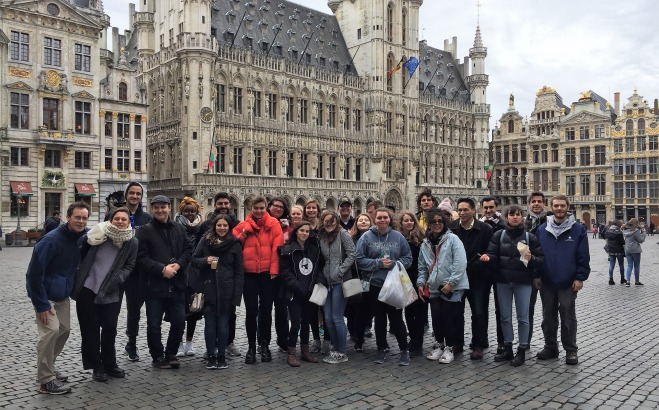We are currently experiencing technical difficulties with our campus voicemail system. We recommend using email for important communications until the voicemail system is fully restored.
Economics, BS

In Short
The major in Economics focuses on the principles of economics for private enterprise market economies in the states as well as the workings of the global economy.
- Employ economic analysis to understand real world problems
- Learn techniques that will put you at the head-of-the line for jobs in business and consulting
- Take part in student-faculty collaborative research
Program Overview
If you are interested in a career in finance, business or management, Fitchburg State University has the program you need. A degree in Economics prepares you for careers in local, state, federal and private agencies and educational institutions, business and industry as well as for graduate study in economics and related fields.
I started at Fitchburg State as a business major with a minor in economics. A professor encouraged me to double major in economics. At first I was skeptical but I truly believe it was one of the best decisions I made. I even had the opportunity to collaborate with a faculty member on an economics paper that is now published.
Experiential Opportunities
Internships
Study Abroad
Curriculum and Other Information
- BS, Economics - Program information from the University Catalog.
- Four-Year Plan of Study - Required and elective courses for program completion.
- Students will be able to critically analyze and evaluate issues in local, national, and global economic life using evidence-based arguments
- Students will be able to articulate economic models in a multidisciplinary context
- Students will be able to demonstrate understanding key economic concept through quantitative reasoning and through written communication
- Students will be able to apply economic theory through experiential learning
- Students will be able to communicate economic ideas effectively through the use of statistical analysis, through the use of writing, and through the use of oral skills
- Students will be able to identify assumptions and assess implications of diverse economic perspectives
- Business and management
- Finance and financial advising
- Consulting
- Graduate School: Master’s or PhD in Economics, Master’s in Applied Economic Public Policy, MBA, Master’s in Statistics, Master’s in Public Policy or Public Administration
- Law School
- Research: within research institutes or universities
- Government (federal [i.e., Department of Labor], state, municipal)
- Local, state, federal and private agencies and educational institutions, business and industry

